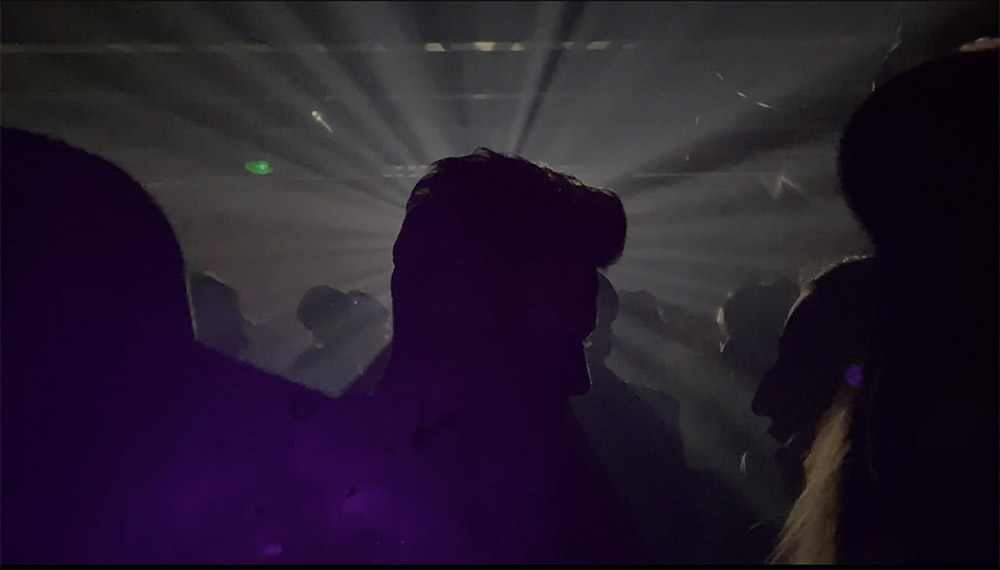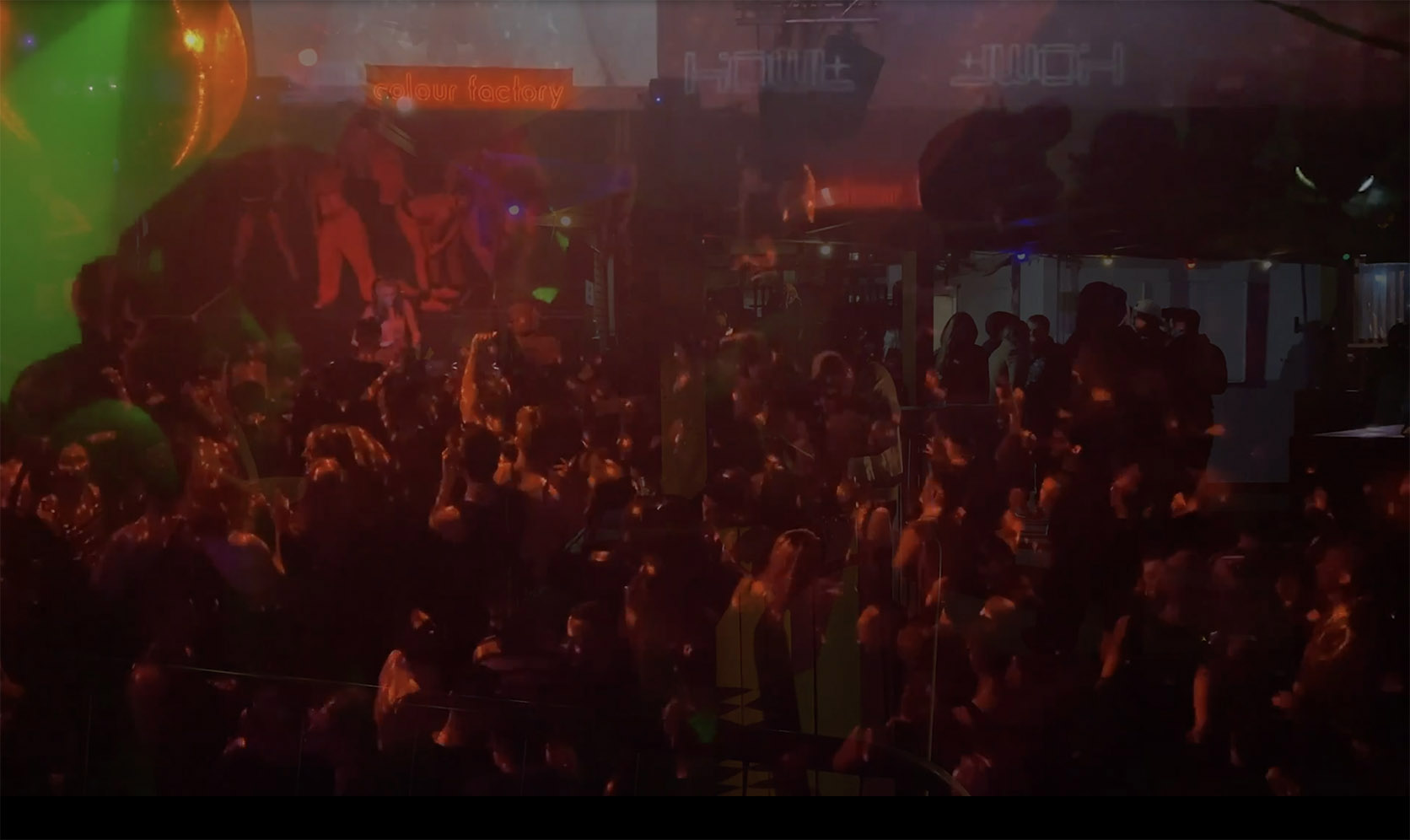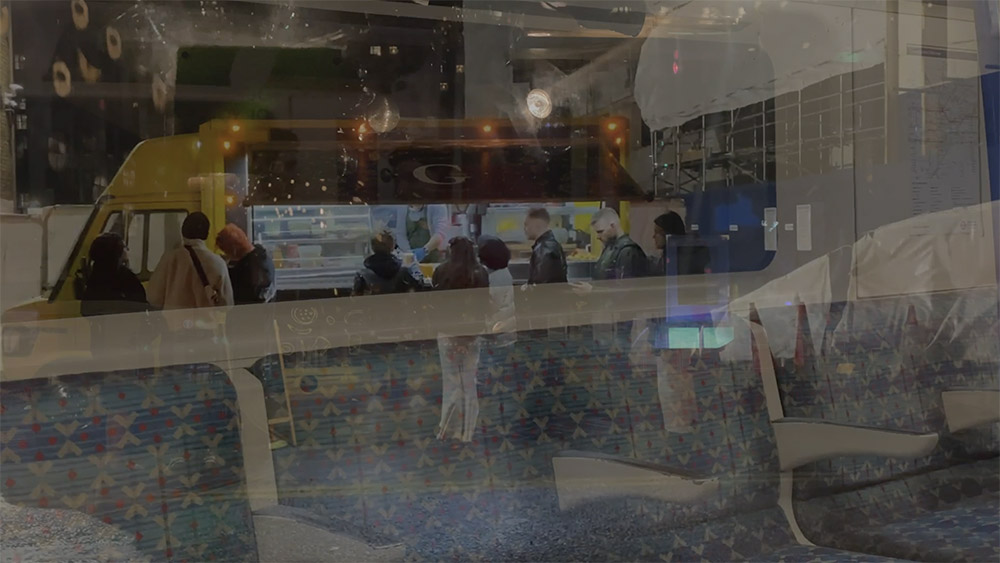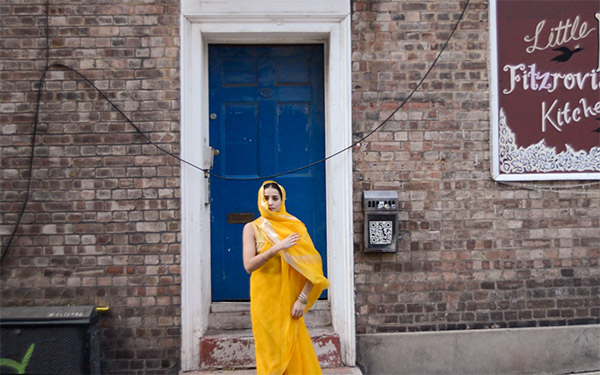Xan Xacobo Goetzee-Barral
The Role Of Ephemerality In The Queer Nightclub
Xan Xacobo Goetzee-Barral presents the ephemerality of the queer nightclub as a means for survival (at the scale of the city), a means for queer intimacy (the nightclub) and a means for promoting inclusivity (the body).
Short Film, The Role of Ephermerality in The Queer Nightclub (X. Xacobo Goetzee-Barral 2022)
Ephemerality can therefore be understood as an evasive and destabilising force
In the context of the heteronormative society that queer nightclubs operate in, ephemerality can therefore be understood as an evasive and destabilising force; ephemerality can be necessary and empowering, allowing these important spaces not only to survive, but to also encourage queer people to express their identity and to relate to each other in innovative and inclusive ways.
As has been highlighted by Campkin and Marshall’s research (2018), queer nightlife spaces often lack inclusivity and therefore a greater emphasis on qualitative research that draws from personal experiences is necessary to understand how idealistic notions of queer space in fact play out. In this view, exploring how queer ways of expressing and relating could potentially be extended beyond the queer nightclub, to other architectural typologies and communities should also be considered.
Crawford’s reading of the Blur Building according to the concept of transgender architecture demonstrates how alternative ways of relating to space could materialise in a different typological and user context, through ever-changing and fluid space. Perhaps then, we can attempt to understand queer spaces not simply as those used by queer people, but also as those that are able to continuously adapt to and celebrate the diversity of its users.

Still 1 from the short film illustrating the transient and open-ended nature of both interactions and the spaces they inhabit in the queer nightclub. (X. Xacobo Goetzee-Barral 2022)

Still 2 from the short film illustrating the transient and open-ended nature of both interactions and the spaces they inhabit in the queer nightclub. (X. Xacobo Goetzee-Barral 2022)

Still 3 from the short film illustrating the transient and open-ended nature of both interactions and the spaces they inhabit in the queer nightclub. (X. Xacobo Goetzee-Barral 2022)
WHO
Name Xan Xacobo Goetzee-Barral (he/him)
Role Student
Programme Architecture MSci Year 2
Department The Bartlett School of Architecture
LABORATORY
A growing archive focusing on work created by students and staff across the Bartlett
view all

